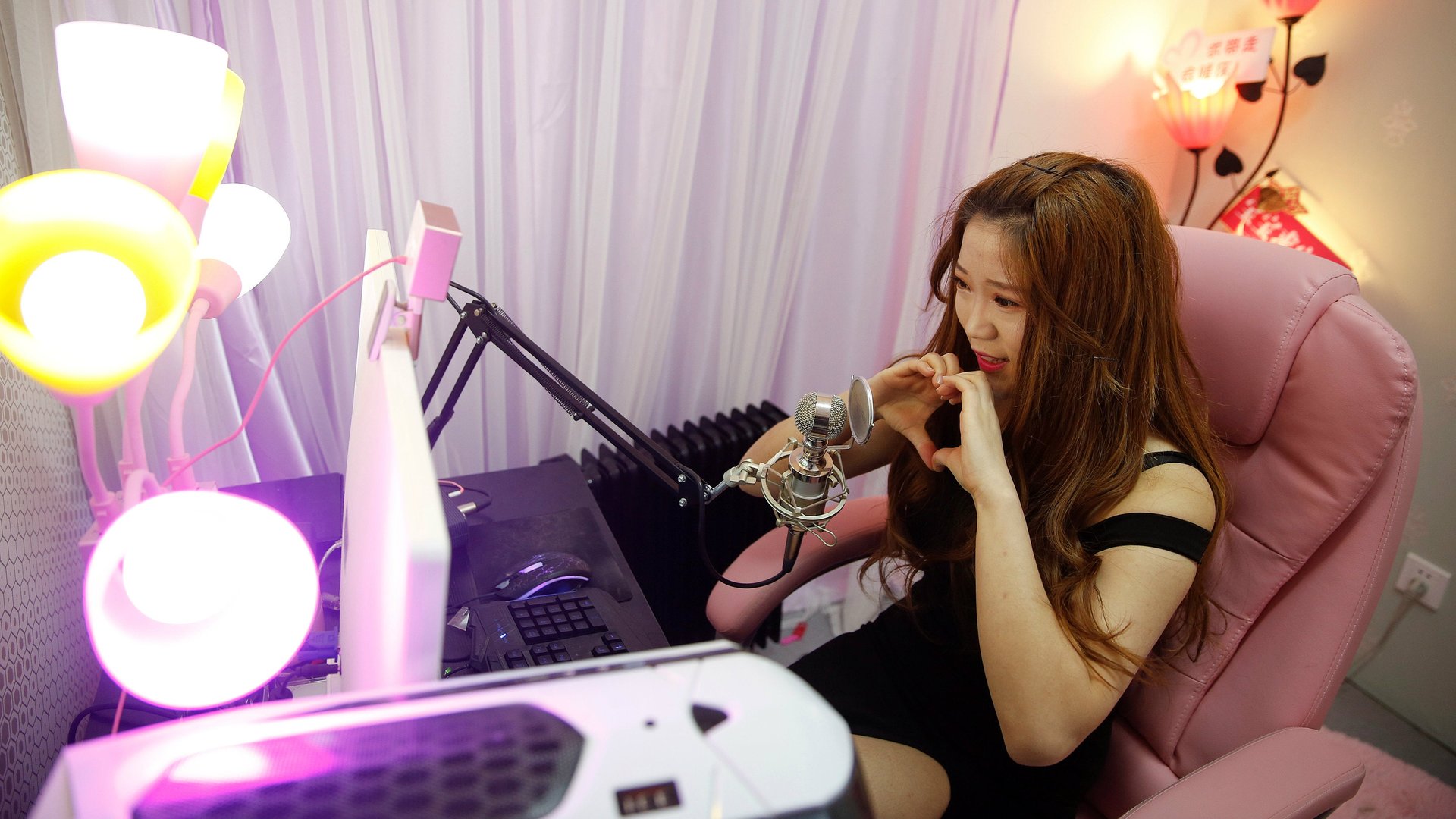China sends a fresh warning to its booming livestreaming industry
China has issued a new code of conduct for its tens of millions of livestreamers—a new class of commentators and opinion-makers with a rapidly expanding sphere of influence.


China has issued a new code of conduct for its tens of millions of livestreamers—a new class of commentators and opinion-makers with a rapidly expanding sphere of influence.
Unlike more traditional media outlets, livestreams are ephemeral and potentially harder to monitor—and therefore more worrying for a state that likes to maintain an iron grip over the political narrative. In 2020, there were at least 130 million livestream accounts in China, according to a report by the China Association of Performing Arts, and more than 600 million users of livestreaming-related services.
Most Chinese livestreams act as e-commerce influencers, promoting products ranging from sunscreen to rice. But politics sometimes creeps in, as happened during a livestream by Li Jiaqui, an influencer with tens of millions of followers. Li usually promotes products such as lipsticks, but earlier this month, he displayed a tank-shaped ice cream during a livestream on the eve of the 33rd anniversary of the Tiananmen Square protests, when the military deployed tanks to crack down on demonstrators. After touching that political red line, he vanished without explanation.
This week, China issued guidelines for livestreamers, aimed at “strengthening the construction of professional ethics.” The guidelines are “obviously” a response to the scandal surrounding Li’s disappearance, said Eric Liu, a former censor at Weibo, China’s Twitter equivalent. Liu, who now studies Chinese censorship, added: “Livestreaming is the type of content that is scrutinised most strictly [by regulators].”
China wants livestreamers to fall in line
The new livestreaming guidelines were issued jointly by China’s State Administration of Radio and Television (SART) and the Ministry of Culture and Tourism. They don’t mention any livestreamers by name; instead, they emphasize that livestreamers should “adhere to correct political orientation” and not publish content that “weakens, distorts, or denies the leadership of the Chinese Communist Party.” The guidelines also prohibit influencers from hyping sensitive or trending social issues, and ban them from using technologies like deep-fake and face-swapping software to misrepresent the state, Party leaders, or China‘s history. Influencers are also required to have relevant qualifications to create content on issues such finance, medical affairs, and law, as these subjects require a “higher professional level.”
These fresh guidelines reinforce the state’s growing control over the livestreaming industry. Since last year, the state has cracked down on some influencers’ alleged tax evasion. Beijing also plans to limit the amount users can spend on virtual tipping, and to censor livestreamers’ content more closely, according to the Wall Street Jorunal.
Livestreaming has exploded in popularity in China
The enhanced scrutiny of the industry is perhaps commensurate with its surge in importance in China. In 2018, Deloitte estimated that Chinese livestreaming had roughly 456 million viewers; by 2020, as the China Association of Performing Arts report calculated, that viewer base had grown to 600 million. The report also valued the industry reached around 193 billion yuan ($28.7 billion) that year. Livestreaming has become a vital source of income for many of China’s youth, who face an unprecedentedly grim job market this year after Beijing’s crackdown on the education and tech sectors, which used to recruit many of China’s fresh graduates.
In a country where the Internet is tightly regulated, these new guidelines are certain to stifle online dissent even further. Papi Jiang, a top Chinese livestreamer famous for her sarcastic takes on social events, said in a recent interview with Chinese media that she perceives too many limitations on what content she can produce. “A lot of the things that I could do in 2015 cannot be done now,” she said. “You have to regulate yourself, while the platforms will also regulate you.”